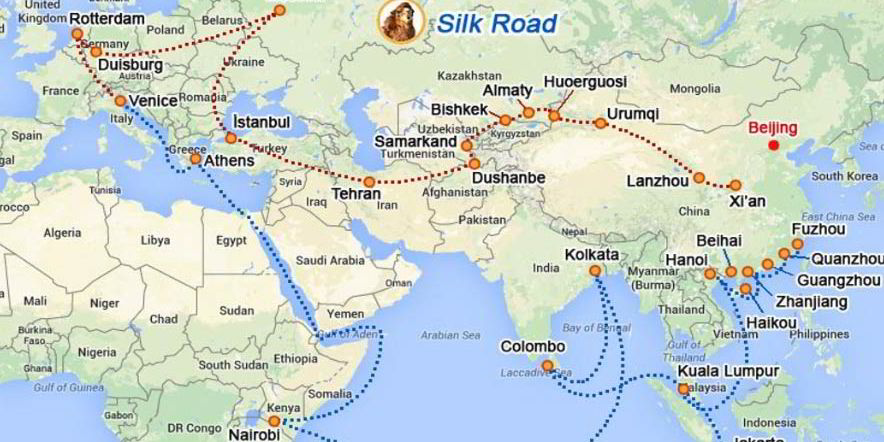China’s huge new Maritime Silk Road project will have a “significant impact” on global shipping, according to lawyer Ince & Co.
Hong Kong senior partner David Beaves said in a web briefing for clients on Thursday: “If everything comes to pass there will be a shift in trade routes.”
“It’s just a matter of time before the world will come to appreciate the magnitude of this project,” he added.
He explained that the $1.2 trillion sea and land One Belt, One Road scheme will aim to compete for the business of the emerging Asian middle class.
The pot of money includes a $40bn maritime infrastructure fund to develop ports on the route from China to Europe. State-owned Chinese banks are involved, together with investment from Russia and other countries.
Terminals will be expanded to handle new and larger ships, with work already carried out in Malaysia and Pakistan.
“This could mean more opportunities for bulk shipping. There could be bigger shipping and cargo demand,” Beaves said.
Chinese-controlled Piraeus in Greece will be the main entry point to the EU.
The project will involve 65 countries comprising a population of 4.4bn people - and accounting for 29% of the world economy.
Free trade agreements will continue to be pursued, with 12 already signed, including Singapore and South Korea.
Eight more are under negotiation, Beaves said.
The ‘Malacca dilemma’
The lawyer also explained China is keen to increase diversity of trade routes to reduce reliance on what the government views as the ‘strategically vulnerable’ Strait of Malacca, through which the majority of Chinese crude imports pass.
Beaves mentioned the potential of the proposed Kra Canal, a waterway cutting across Thailand that would slash 1,200km off current routes.



